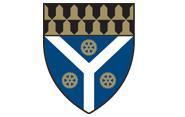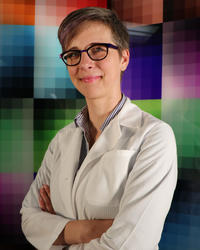Katherine Schilling Shares Tips on Proceeding with the Poorvu Center

With the unprecedented situation that Yale and other universities are going through in the efforts to stop the spread of Covid-19, sharing information on how to proceed is critical. To that end, Katherine Schilling served as the featured speaker in the first of the Poorvu Center for Teaching and Learning’s “Continuity Community” series. Her topic was on how to keep lab courses going online.
 “We tried to capture as much of the lab experience as possible," said Schilling, SEAS associate research scientist for chemical engineering. "We didn’t want them to just take a spreadsheet and say ‘OK, I guess I’m going to do this exercise like my homework.’ We wanted to ground it in the actual experiment itself.”
“We tried to capture as much of the lab experience as possible," said Schilling, SEAS associate research scientist for chemical engineering. "We didn’t want them to just take a spreadsheet and say ‘OK, I guess I’m going to do this exercise like my homework.’ We wanted to ground it in the actual experiment itself.”
Speaking through Zoom, she shared the work that’s been going on at SEAS.
“Labs are a really critical part of the undergraduate science and engineering experience,” she said. “It’s a chance to interact firsthand with what students have been learning in lectures - how you gather data, where theory comes from, and how to be a resilient problem solver. This hands-on experience in the lab was life-changing for me, and it is for many students.”
SEAS has more than a dozen lab courses, not including capstone projects, over several departments.
“We're trying to think about how to translate the take home benefits of working with robots, with reactors, and making radios. How do you take those ideas the students get in the lab and get them to physically take them home with them?”
Going Beyond the Standard Curriculum
Schilling described setting up the remote desktop so students could have access to software they need. They set up mobile recording studio, with one stationary webcam and one mobile for recording experiments. They filmed video demonstrations with existing data, including all the remaining experiments for Chemical Engineering 412.
“In some cases, we didn’t run t whole experiment, like the membrane separation with oxygen - that’s not the most riveting thing to watch, and the students can look at the data and analyze it. The important thing for us was to show where the existing data came from.”
They have data from previous years, but Schilling said they used data collected by students earlier in the class wherever they could.
“We decided it would be a pretty good community feeling for the students to actually share their data from earlier in the term, so if something came up, they knew which students they could talk to. The stress of this whole situation going on globally, it feels good to do something and letting the students pitch in and be there for each other is a good thing.”

